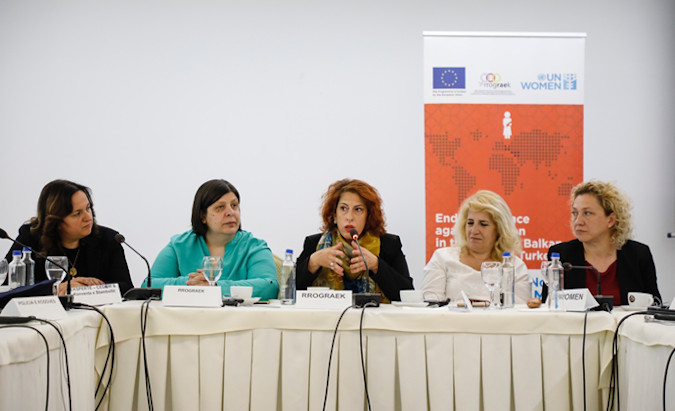Civil society efforts to prevent early marriage start to pay off in Kosovo
Date:

While the Kosovo[1] Family Law forbids marriages for people under the age of 16, early marriage remains a common practice in Kosovo that disproportionately affects the Roma, Ashkali and Egyptian communities.
The lack of official data on such issues, especially within minority communities, remains one of the challenges in tackling this issue. Early marriages are rarely registered, since the administrative procedure to legalize a marriage for children above the age of 16 is costly and time-consuming. However, if these procedures are not followed or if the child is below the age of 16, families can face legal consequences. Thus, spouses often refrain from officially registering their marriage until they turn 18. Another challenge is that while laws exist to protect young people from early marriages, the application of these laws remains limited.
As part of the efforts to address this issue, the Network of Roma, Ashkali and Egyptian Women's Organizations of Kosovo (NRAEWOK) implemented a project to support the prevention of early marriage in minoritized communities, within the framework of the EU-UN Women regional programme on ending violence against women, “Implementing Norms, Changing Minds”.
At the closing conference for the project, NRAEWOK presented recommendations on how to approach the issue, including the allocation of funds for data collection on early marriage in Kosovo, the inclusion of the issue in the Gender Equality Programme of the Kosovo Gender Equality Agency and increased support to NGOs for awareness-raising campaigns in communities with a high prevalence of early marriages.
NRAEWOK has implemented an innovative door-to-door campaign, strategically using boys as agents of change in minoritized communities in order to foster dialogue among families about the detrimental effects of early marriage and the restrictions it imposes on girls’ prospects for a decent life, as well as on preventing violence against women.
During the conference, Shpresa Agushi, Executive Director of NRAEWOK, emphasized that this project is of particular importance ”because it addresses the phenomenon of early marriages, which are unfortunately still quite present among young Roma girls, depriving them of the right to education, but also causing early births which are often associated with health problems, the occurrence of domestic violence of various forms, and economic dependence.”
Linda Sanaja, Project Manager at UN Women, congratulated NRAEWOK for their achievements in all Kosovo municipalities while highlighting the importance of the door-to-door campaign. “Initiatives such as this campaign are of crucial importance, especially when engaging men and boys, as they are seen as agents of change, and without whom such successes would not be possible,” she expressed.
Selma Cekic, Gender Focal Point at the EU Delegation of Kosovo, also underlined the importance of this campaign: “By working with young boys as role models in communities, we can break gender stereotypes which discriminate against women and girls.”
Early marriage is a human rights violation, prohibited by the Council of Europe Convention on preventing and combating violence against women and domestic violence, known as the Istanbul Convention, as well as by the Convention on the Elimination of All Forms of Discrimination against Women (CEDAW). Early marriage not only violates the rights of young girls and boys, but also limits their opportunities in education and employment.
[1] All references to Kosovo on this website shall be understood to be in full compliance with UN Security Council Resolution 1244 (1999).